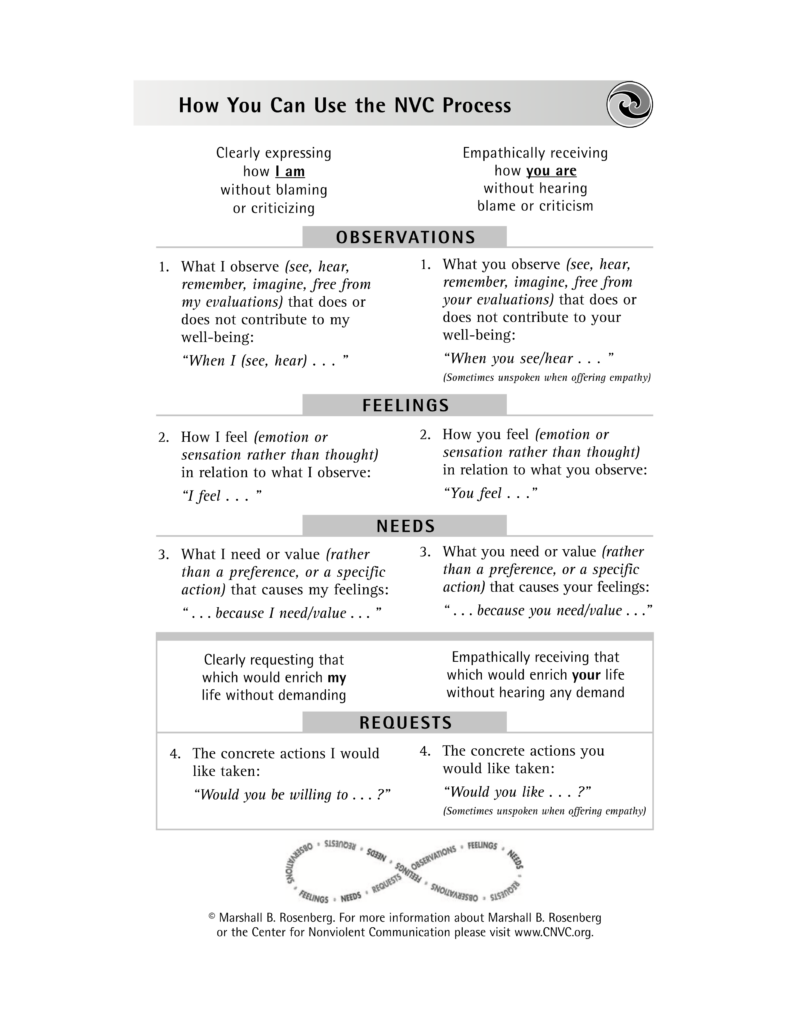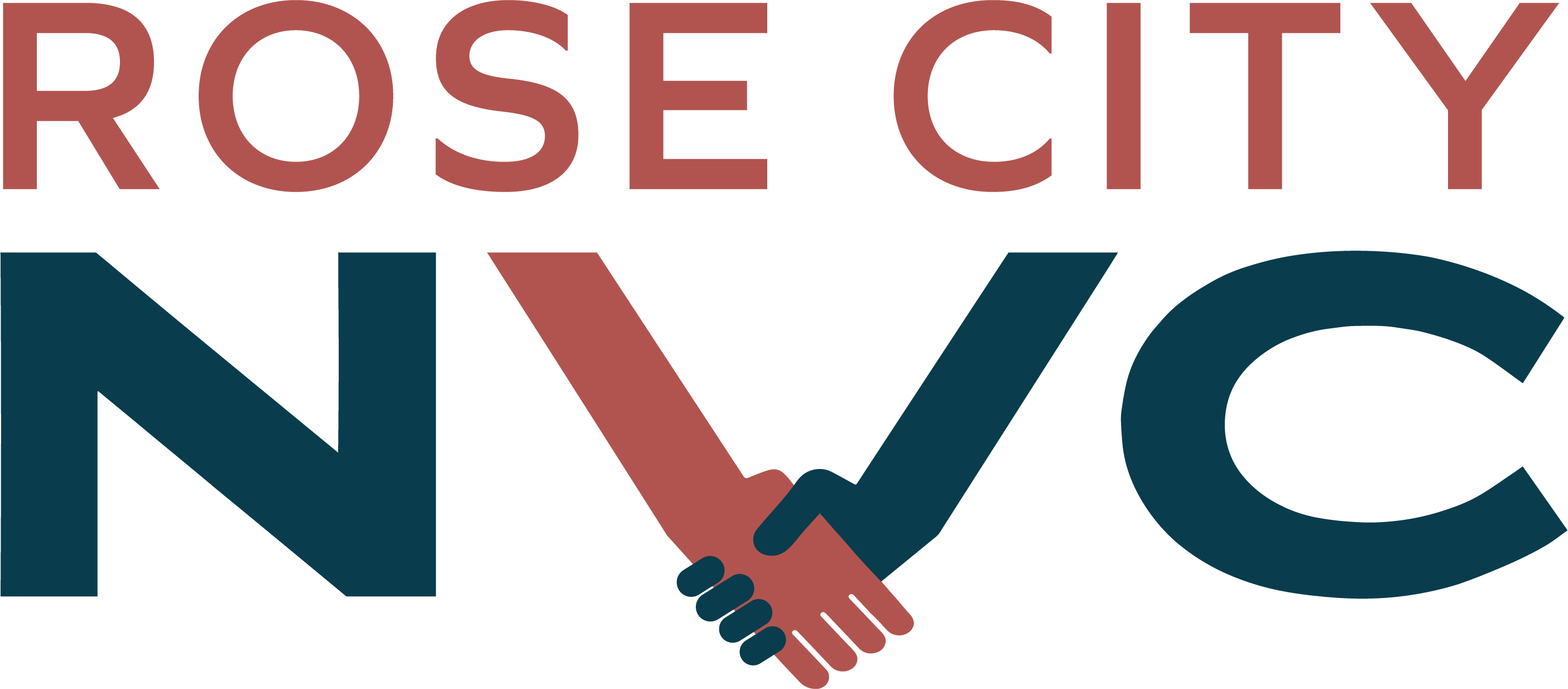What is Nonviolent Communication?
Nonviolent Communication NVC also known as Compassionate Communication is a form and a consciousness. The NVC form is a practical, learnable process for communicating with honesty, efficacy and compassion. It integrates personal development with social change. The purpose of NVC is to ensure everyone’s needs are valued equally and fulfilled in ways that contribute to connection, harmony and peace. It develops people’s ability to listen and transform blame, anger and criticism into respectful, constructive communication, resolve conflicts peacefully, and create a high quality of connection out of which people spontaneously enjoy contributing to one another’s well-being.
NVC is often associated with self-help communication skills, and it goes much beyond. Rather than only a format for communication, NVC is also a consciousness based on interdependence, power-with, abundance and compassion. It holds the intention to create positive connection — recognizing that mutually enriching outcomes will emerge from the quality of the relationship. Rather than be motivated by fear, guilt, or coercion (scarcity, judgement, power-over, etc), people give freely and happily when they trust that their needs matter to the other person, and there is a commitment to find creative solutions that won’t meet either’s needs at the expense of the others. NVC can help you create these kinds of relationships personally and professionally.

Nonviolent Communication (NVC) is a unique and powerful process for inspiring compassionate connection and action. It provides a framework and set of skills to address a wide range of concerns, from the most intimate relationships to global political conflicts.
The purpose of NVC is to help all involved to sharpen their awareness of language so that they can express what really matters to them, and also hear what really matters to others. It involves empathic communication whereby we can attune ourselves to both our own and other people’s real needs.
NVC recognizes that how we interact with each other is driven by core human motivators also known as universal human needs. By using NVC in our daily lives, we can identify and transform deeply ingrained violent communication methods that get in the way of having satisfying relationships. When we speak of violent communication we don’t only mean overt yelling, name calling, what not, we’re also including the more covert and sometimes seemingly subtle communication; communication that’s infused with the energy of demand, judgment/guilt, deserve oriented language, or denial of responsibility, etc.
